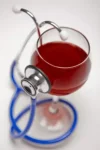Notes Payable Definition, Journal Entries, and Examples
September 28, 2020ALCOHOL DEPENDENCE AND HARMFUL ALCOHOL USE Alcohol-Use Disorders NCBI Bookshelf
October 27, 2020
In an acute sense, consumption of alcohol can lead to uninhibited behavior, sedation, lapses in judgment, and impairments in motor function. At higher levels, the effects can progress to coma and even death. In addition to dementia, long-term alcohol brain fog alcohol use can lead to other memory disorders like Korsakoff syndrome or Wernicke’s encephalopathy. This article will dive deeper into what brain fog is, how it’s related to alcohol, what the symptoms of it are, and much more.
- During the 12- to 24-hour time frame after the last drink, most people will begin to have noticeable symptoms.
- Talk to a healthcare provider if you have a history of addiction or dependence.
- Our daily research-backed readings teach you the neuroscience of alcohol, and our in-app Toolkit provides the resources and activities you need to navigate each challenge.
Factors Influencing Brain Fog Recovery Time
Over time, people who consume large quantities of alcohol develop a tolerance to the drug. This dependency means that their brains crave the drug, causing them to experience withdrawal when they do not drink. Doctors have not yet established a safe level of alcohol consumption during pregnancy, so the best strategy for preventing fetal alcohol syndrome is to abstain altogether from alcohol at this time. If a pregnant woman cannot abstain, she should aim to reduce her alcohol consumption as much as possible. Alcohol begins affecting a person’s brain as soon as it enters the bloodstream. In a healthy person, the liver quickly filters alcohol, helping the body get rid of the drug.
Duration of Brain Fog After Quitting Alcohol
Fatigue and certain medical conditions and treatments, such as cancer and chemotherapy, can also cause hazy thinking and cognitive problems. If an individual is experiencing severe or persistent symptoms, seeking professional help may be necessary. A healthcare professional can provide a thorough evaluation and diagnosis and recommend an appropriate treatment plan. Depending on the severity of the brain fog and other related symptoms, a healthcare provider may recommend medication, therapy, or other interventions to support recovery. Seeking professional help can be essential in managing brain fog and promoting overall well-being. In a study published in 2018, people who regularly had 10 or more drinks per week had one to two years shorter life expectancies than those who had fewer than five drinks.
Cognitive and memory problems
When the liver is not able to filter this poison quickly enough, a person can develop signs of alcohol poisoning or alcohol overdose. An overdose of alcohol affects the brain’s ability to sustain basic life functions. Behavioral treatment programs are helpful for people who want to quit drinking. These programs involve working with a team of mental health professionals in a group and individual setting. You don’t need to be diagnosed with alcohol use disorder in order to quit drinking. If alcohol is interfering with your health or your personal, financial, or professional life, consider quitting.

- Ethanol is a natural product that is formed from the fermentation of grains, fruits, and other sources of sugar.
- People with severe addictions or a long history of alcohol misuse may suffer serious withdrawal symptoms when quitting.
- Consumption of alcohol has and continues to serve major roles in religious and cultural ceremonies around the world.

How can alcohol-related neurologic disease be prevented?

